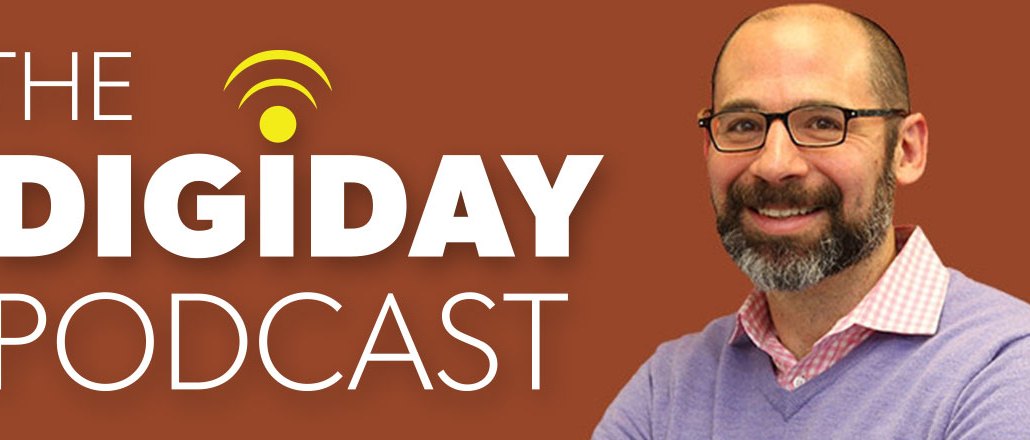Secure your place at the Digiday Publishing Summit in Vail, March 23-25
Atlas Obscura’s David Plotz on building distinctive media brands in the age of platforms

David Plotz is no stranger to the ups and downs of digital media. He spent two decades at Slate, rising to be editor-in-chief before departing in 2014. Now, he’s CEO of Atlas Obscura, a media company that’s trying to stem the tide against the current vogue for giant scale by building what he calls “The National Geographic for the 21st century.”
Plotz, who joined this week’s Digiday Podcast, sees an opportunity for a publication that “makes all of us explorers” by creating original content about weird and wonderful places, while also compiling user submissions of places in a database and providing unique real-world experiences like a sleepover lock-picking party.
In a world of homogenized content, Atlas Obscura would seem very niche. But the company, founded by former Plotz intern Joshua Foer and Dylan Thuras in 2009, has raised about $5 million. While only attracting 3 million visitors a month now, Plotz sees an opportunity to build a large media company.
“It’s clear there’s an appetite for the kind of content and the kind of events we create in the world,” he said. “We want to build a distinctive brand that people have connection with. You build that gradually. You build that with excellent content, by making it a content people feel part of, and by giving people real-world experiences that deepen their connection.”
Below are lightly edited highlights from the episode.
Publishers still need to build distinctive brands.
Plotz often uses the words “distinctive brand” when talking about the ambitions of Atlas Obscura. Publishers have long sought that, but the calculus has changed in digital media in a world of giant platforms, which end up disintermediating publishers from their audiences.
“The obsession of publishers these days is how can you be a successful digital publisher in the age of the platform. When Facebook is the primary content delivery system, are you going to be able to thrive as a distinctive publisher. It agonizes publishers. They have a choice. How hard are we going to optimize everything to get that social traffic, and how do those people who see those stories feel any connection to you as a publisher.”
Events are important to building a brand.
Events are often seen by publishers as cash grabs, a way to monetize a brand and audience at a time when vehicles like display advertising are singularly unattractive. But for Atlas Obscura, which does 250 events a year, events are a key way of building a meaningful connection between its audience and its brand.
Email is still very important.
Email is not dead, at least for publishers. Atlas Obscura has 200,000 subscribers to its email lists. And they’re the publication’s most loyal visitors, its most active sharers. Email is one of the last direct connections publishers can build with their audiences.
“It’s been very valuable for us,” Plotz said. “We see tremendous loyalty from those users. One of the problems of the platform age is there’s no funnel. People have just given up. It’s all top of the funnel.”
Platforms take a lot of work.
Publishers like BuzzFeed have luxuries — more specifically resources — that most publishers do not. It and other large publishers can build six-person Snapchat teams, but for small and midsize publishers, platforms can quickly stretch resources, Plotz said.
“Wouldn’t we all like to be great on Snapchat, great on Instagram, great on Twitter, great on Whatsapp” he said. “But we can’t. We can’t all invest in that.”
The verdict is still out on high-growth digital media.
The past several years has seen digital native publishers like The Huffington Post, BuzzFeed, Business Insider and Vox grow to dizzying heights in audience numbers. Now, as they navigate a shift to platforms, all these publishers need to build enduring, differentiated brands that mean something. That’s not guaranteed, Plotz said.
“I think the verdict is still out,” he said. “They might be. I think Vox is, particularly what Ezra Klein is building. That’s not merely a strong audience. They’re building something brilliant there. It’s a new form of media and really smart. I don’t think the world is going to look back on The Huffington Post with fondness. BuzzFeed, I don’t know. Business Insider, it’s too early to say.”
More in Media

How creator talent agencies are evolving into multi-platform operators
The legacy agency model is being re-built from the ground up to better serve the maturing creator economy – here’s what that looks like.

Why more brands are rethinking influencer marketing with gamified micro-creator programs
Brands like Urban Outfitters and American Eagle are embracing a new, micro-creator-focused approach to influencer marketing. Why now?

WTF is pay per ‘demonstrated’ value in AI content licensing?
Publishers and tech companies are developing a “pay by demonstrated value” model in AI content licensing that ties compensation to usage.





